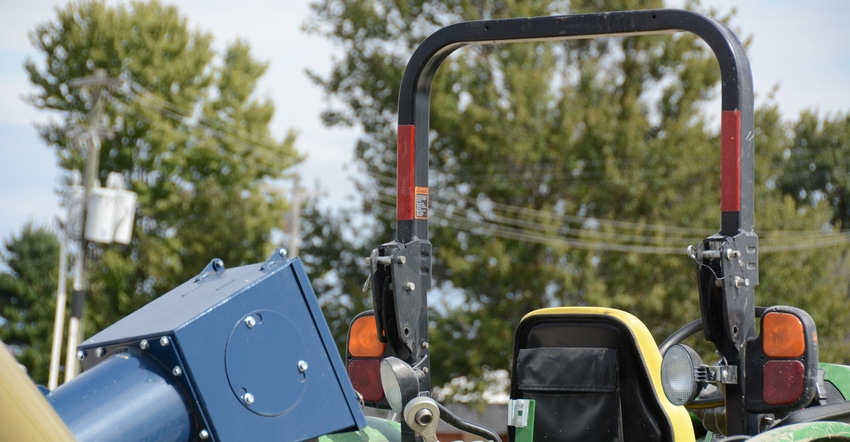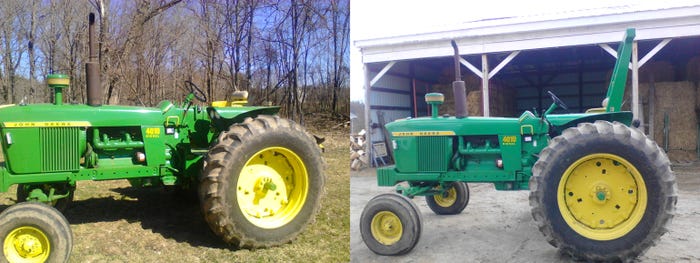
Over the past 10 years, at least 17 tractor deaths were prevented in New York, thanks to a state-funded cost-share program for installing rollover protection.
A study published in late September in the American Journal of Public Health found the avoided deaths have saved farm families $6 million versus a total program cost so far of $1.7 million. The researchers wrote in their conclusion that similar programs “should be expanded into other states.”
And they have been. Rollover Protective Structure (ROPS) rebates are offered in four other Northeast states, as well as Wisconsin and Minnesota, as part of a growing national effort to reduce accidental farm deaths — together retrofitting more than 2,700 tractors so far.
Only one of those retrofitted tractors is in Illinois. The national program at this point is mostly state-driven, with a limited, first-come, first-served pool of money for farmers in states that don’t have their own rebate programs.
Given the state of Illinois’ financial crisis, University of Illinois Extension safety specialist Bob Aherin says he’s not holding out hope for state money for rebates anytime soon.
However, the National ROPS Rebate Program waitlist grows every day, with dozens from Illinois signed up to eventually be considered for the 70% rebate.
“Thus far, we have not been able to secure state-allocated funding in Illinois,” says Pamela Tinc of the National ROPS Rebate Program.
 RETROFIT: John Deere filed the patent for the rollover protection system in the ’60s, though farmers are still using older equipment that needs to be retrofitted.
RETROFIT: John Deere filed the patent for the rollover protection system in the ’60s, though farmers are still using older equipment that needs to be retrofitted.

In the absence of state money, private groups have stepped up. JoDaviess County Farm Bureau is in its fourth year of offering $250 rebates. The Illinois Farm Bureau also ran a rebate program for rollover protection between 2014 and 2015, and retrofitted 10 tractors with $500 grants. The total cost for rollbars ranged from $800 to $1,000.
The National ROPS Rebate Program estimates that more than half of the tractors in the U.S. don’t have rollover protection. Aherin says the Farm Bureau rebate programs have helped put a dent in that in Illinois. Manufacturers also have helped by selling two-post ROPS at-cost in the past.
“The problem is, it takes money,” Aherin says, adding that the patchwork of state funding “keeps moving us forward, little by little.”
Safe ditch mowing
The Occupational Safety and Health Administration has required rollover protection for U.S. farm employees for decades. If an accidental death occurs, lawsuits can draw on OSHA violations for additional liability.
Seven out of 10 farms close within five years of a rollover fatality, according to the National ROPS Rebate Program.
“We highly encourage farmers to use tractors with ROPS as they’re doing mowing activities, because that’s when they’re most vulnerable, as you might expect, for overturns,” Aherin says.
“Data shows that’s where the most deaths occur in Illinois; it’s about 65% to 70% of the tractor deaths in the whole state, and we’ve been keeping data for almost 30 years,” he adds.
Aherin says the data shows rollover protection structures virtually eliminate the risk of farm deaths due to a tractor rollover in Illinois from a safety standpoint.
While rollbars may sometimes prove ineffectual at stopping a complete rollover in a steep ravine, if belted in, users should still be spared any serious injuries or death. Aherin says rollbars are “highly effective” at preventing tractors from rolling a complete 180 degrees in ditches and slightly sloping terrain prevalent in Illinois.
“When we’re doing drainage ditch mowing and field operations, it will keep the tractor from overturning on its back, which would otherwise normally cause the complete crushing of an individual,” Aherin says.
About the Author(s)
You May Also Like




